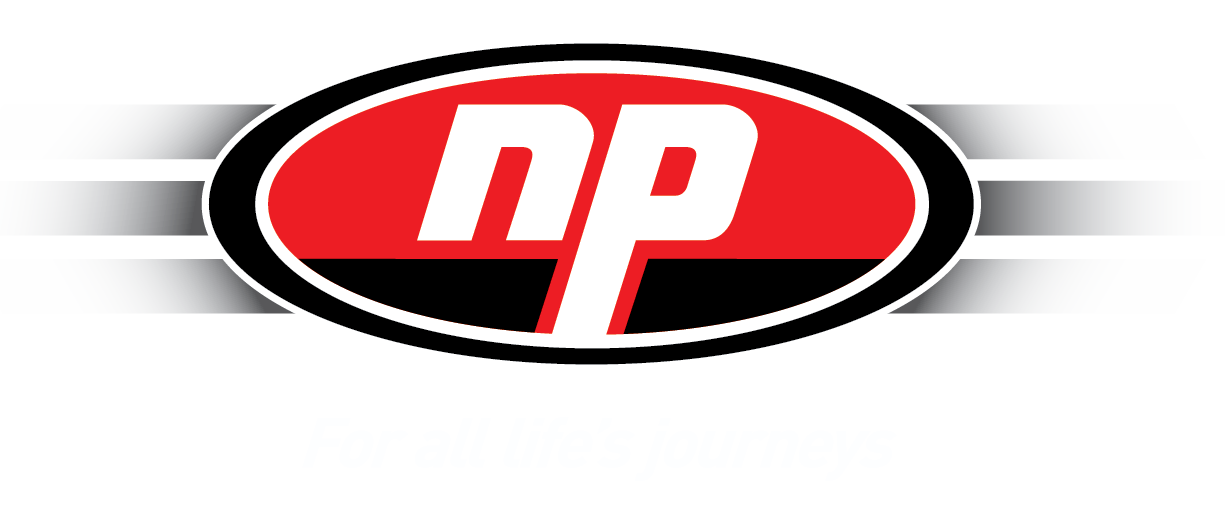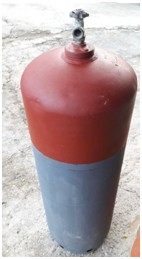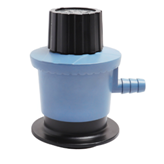
NP GAS - FAQ
Here, we provide the answers to some of the most frequently asked questions regarding the purchasing, safe handling and storage of Liquefied Petroleum Gas (LPG) Cylinders.
DO NOT induce vomiting. DO NOT give liquids. If spontaneous vomiting occurs, lean the victim forward to reduce the risk of aspiration. Seek medical attention immediately!!
Cover the affected area with sand or any other approved absorbent material. Then shovel the waste into a plastic bag for separate disposal. Wash the affected area with degreaser.
Isolate the area from any flammable substances/material. Small fires at the incipient stage can be extinguished using a portable fire extinguisher. Contact the Fire Services Department.
All fuel is highly flammable, particularly Premium Unleaded. Therefore any source of ignition such as a cigarette has the potential to start a fire.
The build up of static electricity caused by cell phone use can potentially cause a fire where gasoline vapours are present, resulting in a fire.
Turn off the gas supply valve on the cylinder. Ventilate the room by opening all doors and windows. However, if the gas leak is on or about the body of the cylinder, remove it to a well-ventilated area outside the house.
The difference is based on the octane rating. Regular is 83, Super is 92 and Premium, 95.
An approved container is a closed one, with a spring closed lid and a spout cover, which is not more than 5 gallons and so designed that it will safely relieve internal pressure when subjected to fire exposure and therefore should be used for gasoline storage.
Filling of barbeque (BBQ) cylinders is provided on a walk-in basis at the Sea Lots, Port-of-Spain Filling Plant of Natpet Investments Company Limited (Natpet) – a subsidiary of National Petroleum (NP), where the cylinders are filled and returned to you the customer in minutes.
This service is available from Monday to Friday between the hours of 7.00 a.m. to 3.00 p.m. The service fee is $5.00 per cylinder (if less than 20lbs.) plus the price of the LPG.If more than 20lbs. the service fee is $15.00 per cylinder.
Filling of Forklift cylinders is provided on a walk-in basis at the Sea Lots, Port-of-Spain Filling Plant of Natpet Investments Company Limited (Natpet) – a subsidiary of National Petroleum (NP), where the cylinders are filled and returned to you the customer in minutes.
This service is available from Monday to Friday between the hours of 7.00 a.m. to 3.00 p.m. The service fee is $5.00 per cylinder (if less than 20lbs.) plus the price of the LPG. If more than 20lbs. the service fee is $15.00 per cylinder.
Close-bodied vehicles (e.g. vans/trucks) are not allowed to transport forklift cylinders to and from theFilling Plant. The vehicle must have an open tray, to allow for adequate ventilation around the cylinders.
If a fire occurs, contact Fire Services immediately for assistance. Based on the colour of the seal, call either 800-NPMC (6762) for NP (blue seal) or 800-4LPG (4574) for Ramco Industries Limited(red seal) directly for further guidance. Arrangements will be made to return the damaged cylinder, regulator and hose back to the Filling Plant for assessment. If the cylinder has no seal, is missing or has a defective ‘O-ring’, has a visible leak or any other defect, do not use the cylinder as it could result in a fire.
The potential applicant can contact NP’s Core Business Support Unit at 625-1364-8 Ext. 465/271or send an email to tcelestin@np.co.tt or jramdass@np.co.tt for further assistance. Please provide full contact information for ease of reference.
A response will be communicated to the interested person within two (2) business days identifying the requirements to become an approved 20lb LPG retailer. After an initial assessment, and if the evaluation process is going further, a site inspection of the proposed business premises would be scheduled at a subsequent date.
The possible reasons for reduced cooking duration can be as follows:
• Leaking or defective:
o LPG cylinder
o Regulator (gas head)
o Hose
• Regulator is still in the ON position, when the stove is not in use.
• The clips on both ends of the hose are not properly secured, causing LPG to escape.
N.B. Always remember to check for leaks with a soapy water solution.
The leaking 20lb LPG cylinder should be transported in an upright position, in an open tray van/truck.
N.B.LEAKING 100LB CYLINDER(S) SHOULD NOT BE MOVED. CALL YOUR LPG DISTRIBUTOR FOR ASSISTANCE.
• If a cylinder is not to be used immediately, store in a cool, well-ventilated area.
• When ready to attach the cylinder to the cooking appliance (e.g. stove), ensure that there is no ignition source within 1.5m (5ft) of the LPG cylinder.
• Ensure that the cylinder is positioned upwind and at least 1.5m (5ft) from the cooking appliance.
• Ensure that the rubber O-ring is on the valve before use and is in good condition, i.e. no cracks, rips or tears etc.
20lb LPG cylinder:
The cylinder should be returned to NP Head Office, Sea Lots, POS where it will then be sent to the Filling Plant for further inspection.
If the cylinder is deemed FIT FOR FURTHER use:
• The customer will be entitled to a return deposit fee of TT$20.00.
• If the customer can provide a receipt of purchase at the $258.75 deposit fee, he/she will be reimbursed this amount.
If the cylinder is NOT FIT FOR FURTHER use:
• It will be sent to scrap, with no reimbursement to the customer.
100lb LPG cylinder:
The cylinder would be picked up and returned to the Filling Plant by one of NP’s authorized LPG Distributors, for further inspection. No attempt shall be made by the customer to return the cylinder to NP.
If the cylinder is DEEMED FIT FOR FURTHER use:
• Domestic customers will be entitled to a return deposit fee of TT$50.00.
• Commercial/Industrial customers upon providing evidence that their installation was conducted by one of NP’s recommended LPG Installation Contractors or for welding purposes (having attained NP’s approval), the customer will be entitled to a return deposit fee of TT$675.00.
If the cylinder is categorized as not fit for further use:
• It will be sent to scrap, with no reimbursement to the customer.
These issues include:
• Cylinder with corroded foot ring;
• Cylinder isexposed to sea blast;
• Customer owns a ‘Bald head’* cylinder with or without LPG (i.e. cylinder without a shroud/collar) – see imagebelow for ease of reference.

Bald Head Cylinder
(*N.B. Bald head cylinders are considered obsolete and are not filled by either NP or Ramco; they are sent to scrap).
If the cylinder is leaking without the gas igniting, and if it is safe to do so, the following actions should be taken:
1. The appliance in operation (stove) must be immediately turned off.
2. All nearby sources of ignition should be extinguished.
3. If the leak cannot be stopped, the cylinder should be:
• Removed to a well-ventilated open space (outdoors) which is well away from sources of ignition e.g. open flames, air-condition compressors, water pumps, drains, buildings and other LPG cylinders.
• Placed in an upright position.
• Isolated from general access (for example blocked off by barriers, gates etc.)
4. If the leak is detected as emerging from the shroud/valve area of the cylinder, place a wet rag/cloth over the said area.
5. No attempt should be made by the customer to make any repairs.
6. The cylinder should be returned to the retailer or directly to NP Sea Lots, Port-of-Spain for inspection and possible replacement.
1. The appliance in operation (stove) must be immediately turned off.
2. All nearby sources of ignition should be extinguished.
3. The cylinder valve should be closed.
4. If the leak is detected as emerging from the shroud/valve area of the cylinder, place a wet rag/cloth over the said area.
5. If the leak is detected as emerging from the body of the cylinder, use a hose or sprinkler system to spray water onto the said area if possible.
6. No attempt should be made by the customer to make any repairs.
7. The Distributor responsible for supplying the customer with 100lb cylinders should be contacted to make subsequent arrangements to acquire the leaking cylinder and replace accordingly.
8. This cylinder will be returned to NP’s Filling Plant at NATPET by the LPG Distributor for further inspection.
For 20lb Cylinders:
• Ensure that the valve is free of any debris or foreign matter e.g. dirt, dust and insect web etc. Do not depress/tamper with the pin on the valve.
• If LPG is still not being released from the cylinder, return the cylinder to the retailer or directly to NP Sea Lots, Port-of-Spain for inspection and possible replacement.
For 100lb Cylinders:
• Do not tamper with the cylinder. Contact your LPG Distributor.
• Ensure that the hose is in good condition. It is recommended that hoses be replaced every five (5) years and must be of the correct type. Hoses should be inspected on every change of a new cylinder.
• Always replace a defective hose e.g. hoses that are brittle, or with cracks or kinks.
• Always use the approved regulator that meets the EN 16129 or EN 12864 Standard for household use.
• Do not use regulators with the adjustable gas flow valves for domestic use(refer to image below).

Adjustable Gas Flow Valve NOT Recommended for Domestic Use.
• Ensure that the regulator is appropriately locked onto the valve of the cylinder.
• After doing so, verify by manually lifting the locked regulator with the cylinder off the ground.








